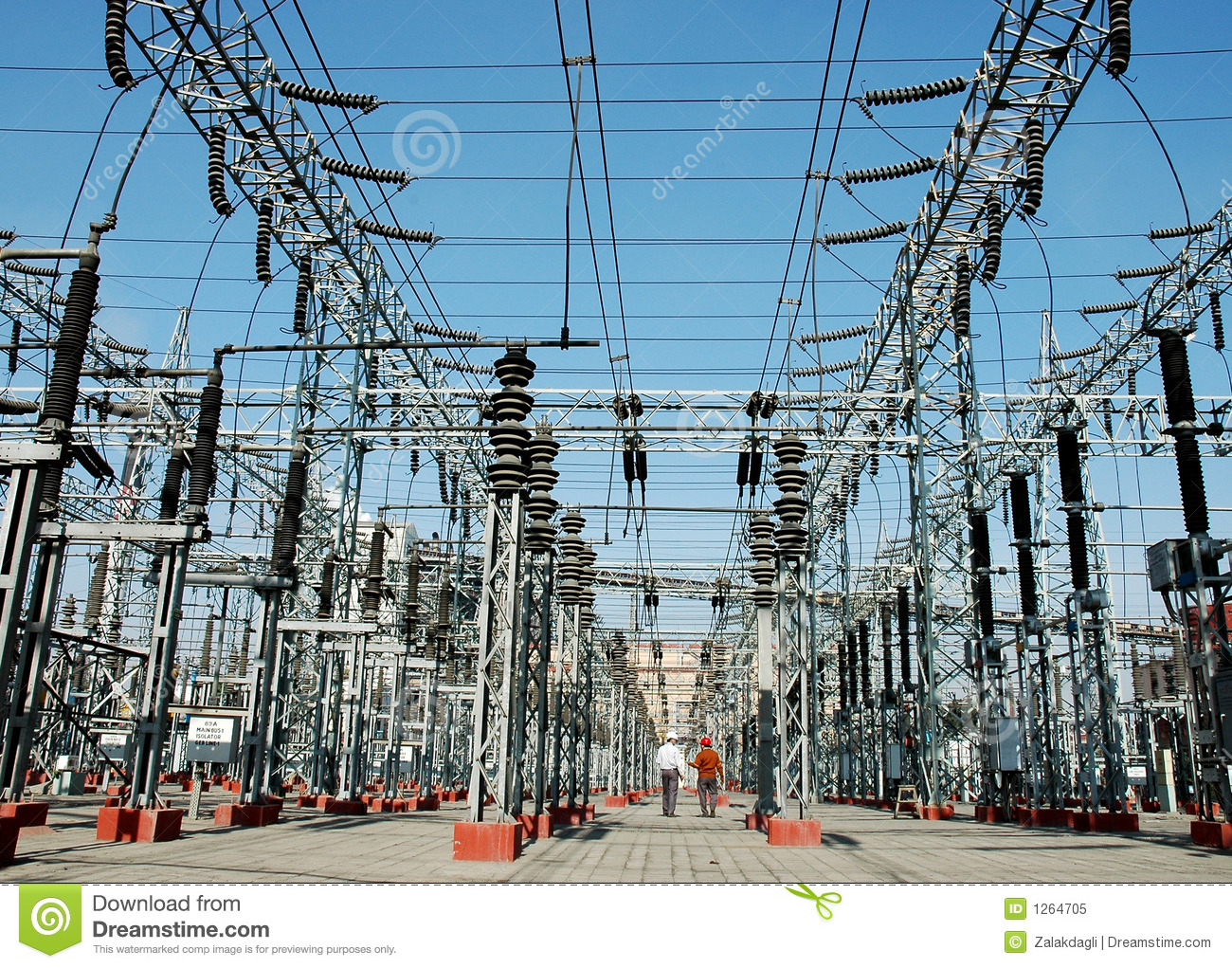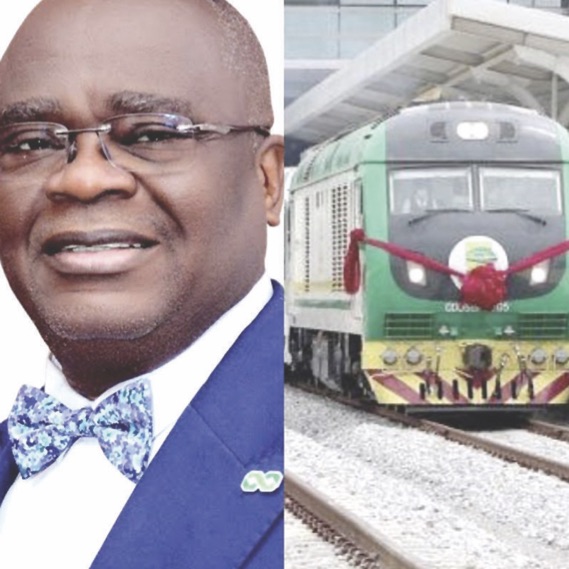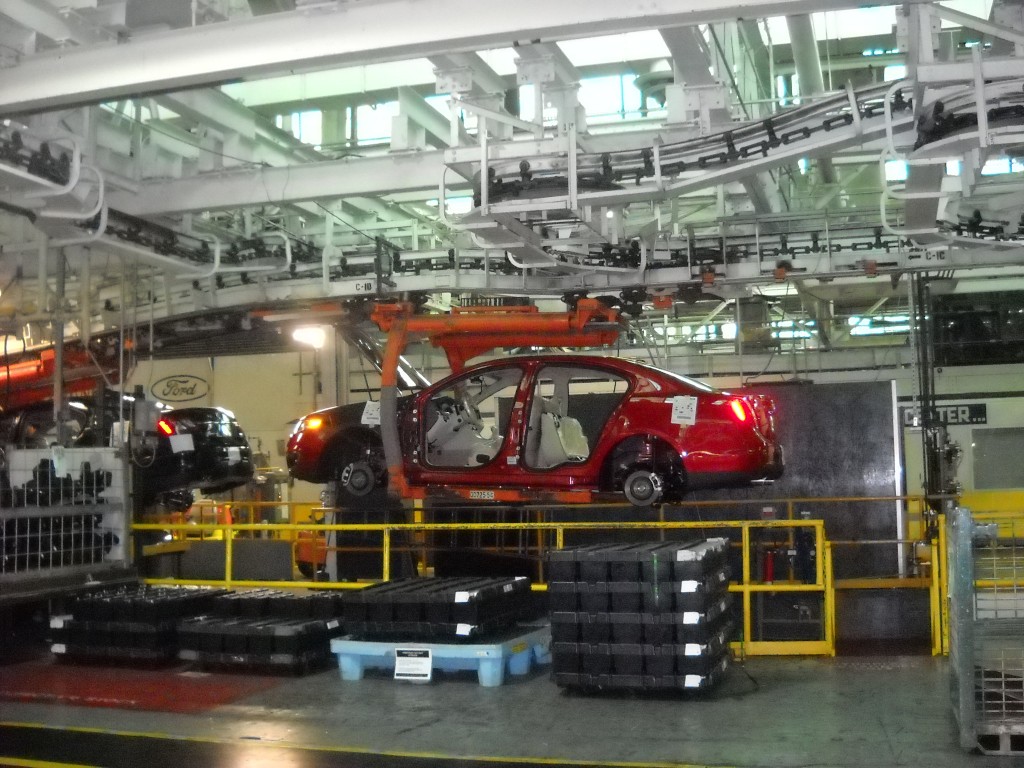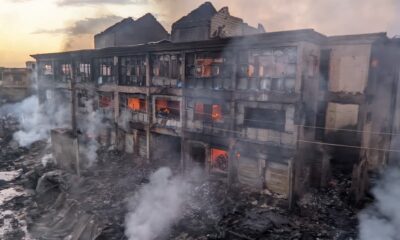Business
FG Blames Drop in Electricity Generation on Shutdown of Critical Gas Plant

– Targets 1,000MW from reactivated 14 solar projects
– Tasks gas operators on the accuracy of dispensing instruments
The federal government yesterday explained that the drop in electricity generation was a result of the partial shutdown of the Oben gas plant for the repair of critical gas processing equipment.
It has also disclosed that the 14 reactivated independent power plants (IPP) across the country will produce off-grid electricity of 1,000 megawatts.
A statement by the Federal Ministry of Power disclosed that Seplat Energy Plc had mobilised equipment, material, and personnel to the site to expedite the restoration of normal gas supply to the affected power plants.
The statement read: “We wish to notify the general public that the current dip in electricity generation is a result of the partial shutdown of the Oben gas plant to address the repair of critical gas processing equipment.”
“The incident, unfortunately, occurred at a time when other power plants on other gas sources are undergoing planned maintenance and capacity testing.
“We wish to notify the public that Seplat Energy Plc has mobilised equipment, material, and personnel to the site to expedite the restoration of normal gas supply to the affected power plants.
“We have been assured that the repair work would be concluded this weekend and normalcy will be restored. While pleading with electricity consumers with the current state of supply, we wish to assure the general public that efforts are being made for a sustained improvement of supply across the country.”
Meanwhile, the Minister of Power Abubakar Aliyu has disclosed that the 14 reactivated IPP across the country will produce off-grid electricity of 1,000 MW.
Aliyu disclosed the maiden three-day Nigeria-African Natural Resource and Energy Investment Summit hosted by the Ministry of Mines and Steel Development in collaboration with other stakeholders in Abuja.
The maiden event has the theme: “Towards a Greener Africa” which ended at the weekend.
READ ALSO:
- Police confirm death of 2 gallant officers from bullet wounds in Enugu
- Ahead Of APC Primary: Buhari Pushes For Consensus As Northern Govs Back Southern Presidency
- NAHCON Announces 2022 Hajj Fares
The minister said, “government has reactivated 14 IPP Solar Projects across the country. These IPPs, which are currently undergoing Technical and Financial Evaluation, shall contribute 1000MW off-grid. 10 state governments are enabling solar projects in their states that will deliver 100MW each contributing 1,000MW off-grid.
“The 10MW Katsina Wind Farms already contributing to the grid and is being considered for a solar hybrid that will optimise its availability to 20MW. Once we stabilise the base load through the hydropower plants at various stages of completion, we shall integrate all the off-grid structures to the national grid, increasing our energy mix.”
He noted that African governments must be proactive and responsive to the course collectively as that is a prerequisite for achieving a cleaner energy future, adding “It is only by this can Africa actualise its green transition”.
Speaking further on international partnership toward greener energy, Aliyu said, “Countries, like Nigeria, have made commitments to achieve their Nationally Determined Contributions (NDCs) in line with the Paris Agreement on Climate Change and the COP26 Agreement in Glasgow.
“To achieve this, we have to scale up our Solar, Wind, hydropower, and even the new hydrogen opportunities, including other new clean technologies.
Africa needs to focus on proven approaches, as well as the mobilisation of resources to take advantage of carbon-neutral energy sources.
FG Tasks Gas Operators on Accuracy of Dispensing Instruments
In a related development, the federal government has directed operators in the Liquefied Petroleum Gas (LPG) sector to install deadweight at their premises to test the accuracy of weighbridges used for dispensing bulk gas to retailers.
The government also insisted that henceforth, the use of weighbridges should be the norm at depot terminals when loading LPG products rather than the use of gas meters to ensure that the product being dispensed is accurate since LPG is retailed by weight.
The resolution came against the backdrop of persistent complaints of under-dispensing of products at LPG depot terminals as well as retail outlets across the country.
The federal government’s position was contained in a communiqué issued at the end of a one-day stakeholders engagement organised by the Weights and Measures Department of the Federal Ministry of Industry, Trade and Investment, with the Nigerian Association of Liquefied Petroleum Gas Marketers (NALPGAM) and Liquefied Petroleum Gas Depot Owners (LPGDO) on the application of legal metrology in the oil and gas sectors in Nigeria.
THISDAY gathered that the outcome of the meeting had already been approved by the Minister of Industry, Trade, and Investment, Mr. Niyi Adebayo for immediate implementation.
READ ALSO:
- Man who shares video of himself having sex online was PDP delegate + Video, photo
- Yerima: There was no agreement to hand over Presidency to Tinubu after Buhari
- Bandits kidnap 14 in attack on Kaduna community
The communiqué, which was obtained by THISDAY further, directed that henceforth, tankers used for loading and transporting LPG should ensure that they gauge their tank pressures to conform with safety standards before loading to avoid incurring shortages due to excessive gas in their tanks during loading.
It also pointed out that as a matter of urgent necessity, the weights and measures department should embark on periodic inspections of the LPG depot terminals to ascertain their level of compliance with operational guidelines.
It was also agreed that the existing skill gaps noticeable in weighbridges installation should be addressed adding that the quality of gas in the market should be of a high standard with less propane and which should be enforced by the Nigerian Midstream and Downstream Petroleum Regulatory Authority (NMDPRA).
The federal government however warned that depot terminal operators found to be under-dispensing the Liquefied Petroleum Gas (LPG) as well as marketers to consumers will be penalised and urged the weights and measures department to strengthen its oversight functions of the numerous LPG retail outlets across the nooks and crannies of the country.
Moreover, on the issue of overlapping duties between the department and NMDPRA, the stakeholders resolved that the activities of the department revolved around the verification and certification of measuring equipment which is statutorily backed by existing legislation while the former dwelled on the issuance of licenses to petroleum product dealers.
The Director, Weights and Measures Department, Mr. Hassan Ejibunu, however, told THISDAY, “We’ve been receiving complaints from NALPGAM that whatever they buy in bulk from the terminals, maybe 33,000 litres of LPG, but by the time it gets to the final destination you’ll find out it is less than 33,000 litres – may be what is left is about 30,000 litres or less than that.
“We equally received complaints from members of the public that if they go to the retail outlets to buy let’s say 12.5 KG cylinder of LPG, what they’ll get is not up to that.”
He said the stakeholder’s engagement was convened to address the underlying issues and to ensure that consumers of gas get value and accuracy for every purchase they make.
THISDAY
Business
CBN Policies, Foreign Inflows Drive Naira to Two-Year Peak

CBN Policies, Foreign Inflows Drive Naira to Two-Year Peak
Nigeria’s naira has extended its recent rally, trading at one of its strongest levels against the U.S. dollar in nearly two years, supported by sustained foreign portfolio inflows, tighter liquidity management, and targeted policy interventions by the monetary authorities.
A macroeconomic update by CardinalStone shows that the local currency has appreciated 6.9 per cent year-to-date at the official foreign exchange market, closing at ₦1,347.78/$—its strongest performance since early 2024. The appreciation reflects improved FX liquidity and growing confidence in the official trading window.
Despite the gains, a gap persists between the official and parallel markets. However, the premium narrowed from about 5.7 per cent to roughly 3.2 per cent following renewed foreign exchange interventions by the Central Bank of Nigeria. According to CardinalStone, the compression of the spread indicates stronger liquidity conditions in the official market, reducing incentives for speculative trading and arbitrage.
As part of efforts to further stabilise the FX market, the CBN recently authorised licensed Bureau de Change (BDC) operators to access foreign exchange from approved dealers at prevailing market rates, subject to a weekly cap of $150,000 per BDC and strict Know-Your-Customer (KYC) requirements. Under the framework, operators must sell unused FX balances within 24 hours, limit cash transactions to 25 per cent of total trades, and settle transactions through licensed financial institutions.
READ ALSO:
- Edo Governor Okpebholo Names Mercy Johnson-Okojie Special Adviser
- Many Feared Dead as Suspected Lakurawa Militants Attack Kebbi Communities
- AMAC Polls Shock: Another PDP Candidate Withdraws from FCT Race, Backs APC
With 82 licensed BDCs currently operating, CardinalStone estimates that potential FX supply to the segment could rise to about $50 million monthly. Although this remains significantly below pre-pandemic levels, the renewed supply has helped ease retail FX demand pressures and compress the premium in the parallel market.
While foreign inflows have strengthened the naira, analysts caution that continued appreciation could prompt profit-taking by offshore investors. CardinalStone estimates outstanding foreign portfolio investment (FPI) exposure at between $12 billion and $14 billion, noting that Nigeria’s carry trade remains one of the most attractive across emerging and frontier markets.
The firm added that assuming many investors entered the market at around ₦1,500/$, a move toward ₦1,200–₦1,250/$ could deliver over 22 per cent FX gains on currency alone. Such gains could heighten the risk of portfolio rebalancing or exits, particularly as political and election-related uncertainties begin to build.
Ahead of the latest meeting of the Monetary Policy Committee, analysts describe the macroeconomic signals facing policymakers as mixed. Inflation has started to moderate, while short-term interest rates have converged near 22 per cent, about 500 basis points below the 27 per cent Monetary Policy Rate (MPR).
However, the CBN has signalled low tolerance for excess liquidity, intensifying Open Market Operations (OMO) issuances and keeping the Standing Deposit Facility (SDF) attractive to absorb surplus funds and prevent renewed inflationary pressure. Analysts also point to concerns around election-related liquidity, which is expected to intensify in the second half of the year, with over 75 per cent of projected 2026 liquidity expected in the first half.
Looking ahead, CardinalStone expects the CBN to hold the policy rate while adjusting the asymmetric corridor to align SDF rates with OMO yields and preserve the attractiveness of naira assets for foreign investors. Forward market indicators suggest a softer currency path later in the year, with the naira projected to trade within a ₦1,350–₦1,450/$ range in 2026, despite the recent rally.
CBN Policies, Foreign Inflows Drive Naira to Two-Year Peak
Railway
Railway track vandalism: Urgent need for laws prohibiting scrap/metal picking to protect critical assets

Railway track vandalism: Urgent need for laws prohibiting scrap/metal picking to protect critical assets
By Onyedikachi Stanley Onovo
The wanton destruction and theft of Nigeria’s railway infrastructure and other critical public assets represent one of the gravest threats to national development and security.
Across the nation—from the Warri-Itakpe line to Abuja-Kaduna, the Eastern and Western Districts, Lagos-Ibadan, and throughout the Northern network—vandals systematically dismantle tracks, steal armoured cables, and pillage essential equipment. This crisis demands an immediate and robust legislative response.
The unending menace
The vandalism is perpetrated by a network of individuals, from local miscreants (“iron condemn”) to organised merchants who purchase and export stolen materials. Security reports and countless arrests underscore the scale of the problem:
In December 2023, a private security firm arrested 13 suspects for vandalising Abuja Mass Transit Rail assets. The suspects were said to be casual workers engaged by a Chinese company working on the railways, but said to have used the opportunity to steal the materials.
On June 2024, The Cable reported that the Nigerian Army arrested 47 suspected rail track vandals in Kaduna State.
In October 2025, police arrested a suspect vandalising railway electrical installations also in Kaduna State.
Radio Nigeria in December 2025 announced the arrest of three persons in Kwara State for vandalizing and stealing Railway clips and nuts in Offa.
In May 2021, TVC reported some individuals, including one Ejike Okeke were apprehended in Enugu with stolen sleepers and tracks.
On the 30th of January 2026 the Nigerian Television Authority reported that the NSCDC, Bauchi State Command arrested five suspects and intercepted a truck carrying vandalized railway tracks.
This relentless assault has plagued successive management of the Nigerian Railway Corporation (NRC), defying conventional counter-strategies.
A transformative leadership initiative
A pivotal shift began under the administration of President Bola Ahmed Tinubu with the appointment of Dr. Kayode Opeifa as Managing Director/CEO of the NRC.
Dr. Opeifa introduced a fundamental paradigm shift by redesignating what was carelessly termed “scrap” as “unserviceable critical national assets.”
This reframing has driven a transformative partnership with experts to manage these assets responsibly. The era of controversial public auctions—which often saw valuable national iron assets disappear, depriving Nigeria of materials for repurposing and industrialisation—is now over.
Today, a systematic process ensures these materials are reused or responsibly processed, with revenue reinvested into the Corporation. This home-grown solution is a commendable breakthrough that proves Nigerians can effectively solve national challenges.
The critical legislative gap: Targeting the market
While the NRC’s internal reforms are laudable, they alone cannot stem the tide. The root enabler of this vandalism is the thriving, unregulated market for stolen metal. To kill the vandal’s incentive, we must eradicate the demand.
Therefore, there is an urgent need for the National Assembly to enact legislation that:
1. Prohibits the buying and selling of any railway materials (serviceable or unserviceable) on the open market.
2. Imposes severe penalties on buyers and merchants of vandalised public assets, effectively targeting the economic drivers of this crime.
3. Mandates stringent federal regulation of all scrap metal dealers nationwide.
THE SCRAP DEALER NEXUS
The opaque operations of scrap dealers are a major concern. Their compounds are often shrouded, hiding the provenance of their materials. This unregulated space fuels not only railway vandalism but also community theft—from iron crossing bars in homes to street lamp holders.
Trailers loaded with questionable materials move freely from cities and expressways to unknown destinations. Without regulating this sector, our fight against vandalism remains superficial.
CONCLUSION
The partnership and innovation under Dr. Opeifa’s leadership at the NRC demonstrate what is possible with commitment and vision.
However, to secure our railways, power installations, and other critical assets, we must complement this institutional resolve with strong, deterrence-based law. Legislation that dismantles the market for stolen public property is not an option; it is a national imperative for Nigeria’s security and industrial future.
*Onyedikachi Stanley Onovo, Ph.D
FCAI, ANIPR
onyedikachionovo1@gmail.com excellentdikachi@yahoo.com
Auto
MOMAN, ALCMAN Partner BKG to Drive Nigeria’s Shift from Auto Imports to Industrial Production

MOMAN, ALCMAN Partner BKG to Drive Nigeria’s Shift from Auto Imports to Industrial Production
In what industry stakeholders view as a decisive move toward industrial rebirth, BKG Exhibitions Limited has entered into a strategic partnership with the Motorcycle Manufacturers Association of Nigeria (MOMAN) and the Automotive Local Content Manufacturers Association of Nigeria (ALCMAN) to accelerate local automotive manufacturing and reduce the country’s heavy reliance on imports.
The alliance, formalised in Lagos, signals a coordinated private-sector effort to reposition Nigeria’s automotive ecosystem from an import-dependent market to a production-driven industrial base capable of delivering value addition, technology transfer, and large-scale employment.
For decades, Nigeria’s automotive sector has been dominated by the importation of fully built vehicles and, more recently, the assembly of semi-knocked-down (SKD) and completely knocked-down (CKD) kits.
While these models generated commercial activity, stakeholders argue they failed to build deep industrial capacity or strengthen indigenous engineering expertise.
The new partnership seeks to change that narrative by transforming trade exhibitions into structured industrial platforms that connect manufacturers with policymakers, institutional buyers, investors, and international technical partners.
A senior executive at BKG Exhibitions said the collaboration represents a deliberate shift in strategy.
“Exhibitions must go beyond passive marketplaces. They must become engines of economic transformation where Nigerian manufacturers secure contracts, attract capital, and demonstrate production competence,” he said, noting that Nigeria already possesses strong demand but lacks a coordinated ecosystem to convert that demand into domestic output.
“Nigeria remains one of Africa’s largest mobility markets, driven by rapid urbanisation, a growing youth population, and expanding last-mile logistics services.
“Motorcycles and tricycles play a critical role in urban transport, agriculture distribution, and the fast-growing delivery economy.
“However, a substantial portion of these vehicles and their components are imported, placing pressure on foreign exchange and limiting domestic industrial growth.”
MOMAN President Rev. Lambert Ekewuba emphasized that strengthening local production would go beyond import substitution.
“When we manufacture locally, we create jobs, retain capital, and build the technical foundation for advanced automotive engineering,” he said.
ALCMAN Chairman, Chief Anselm Ilekuba, stressed the importance of developing a resilient components ecosystem, describing it as the backbone of any successful automotive industry.
“No country becomes an automotive powerhouse without first nurturing strong supplier networks. Nigeria must empower small and medium-scale enterprises producing metal parts, plastics, electrical systems, and other inputs,” he said.
Under the alliance, future exhibitions will feature dedicated pavilions showcasing Nigerian-made components and vehicles, offering manufacturers direct access to government agencies, transport operators, and regional distributors.
Analysts believe such curated exposure could gradually shift procurement patterns toward locally produced alternatives.
Beyond the domestic market, the partnership aims to position Nigeria as a manufacturing hub serving West and Central Africa, leveraging opportunities under the African Continental Free Trade Area (AfCFTA).
Industry leaders say expanding export capacity will depend on strengthening standards, financing mechanisms, and technical capability.
The alliance also plans coordinated advocacy for policies that support localisation, including improved access to financing, reduced duties on industrial machinery, technical training aligned with modern production systems, and procurement frameworks favouring locally manufactured goods.
Economists argue that a revitalised automotive manufacturing base could stimulate growth across steel, petrochemicals, logistics, warehousing, and tooling industries, reinforcing the sector’s role as a catalyst for broader industrialisation.
Coming at a time when Nigeria is intensifying efforts to diversify its economy away from oil dependence, stakeholders say the success of this alliance could mark a turning point — shifting the country from being one of Africa’s largest automotive consumption markets to an emerging centre of production, innovation, and regional trade.
-

 International2 days ago
International2 days agoCanada Opens New Express Entry Draw for Nigerian Workers, Others
-

 Politics11 hours ago
Politics11 hours agoPeter Obi Launches ‘Village Boys Movement’ to Rival Tinubu’s City Boys Ahead of 2027
-

 News2 days ago
News2 days agoKorope Drivers Shut Down Lekki–Epe Expressway Over Lagos Ban (Video)
-

 Health3 days ago
Health3 days agoRamadan Health Tips: Six Ways to Stay Hydrated While Fasting
-

 News18 hours ago
News18 hours agoPolice to Arrest TikToker Mirabel After She Recants False Rape Claim
-

 Entertainment3 days ago
Entertainment3 days agoActress Destiny Etiko Breaks Silence on Alleged Nollywood Betrayal
-

 metro2 days ago
metro2 days agoOsun Awards 55.6km Iwo–Osogbo–Ibadan Road Project to Three Contractors
-

 International20 hours ago
International20 hours agoEpstein, Ex-Israeli PM Named in Alleged Profiteering From Boko Haram Crisis















